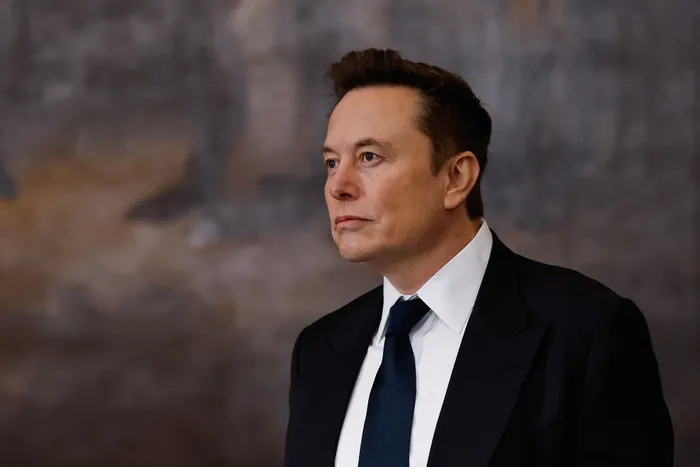Elon Musk's Starlink: Controversies surrounding its South African launch

The Independent Communications Authority of South Africa (Icasa) says it has not received an application from Elon Musk's Starlink internet service to operate in South Africa.
Image: AFP
The Independent Communications Authority of South Africa (Icasa) has not received an application or any formal communication regarding the launch of Starlink internet service to operate in South Africa, despite reports indicating that the deal is close to finality.
According to reports, the government was preparing to offer Elon Musk a special exemption from the country’s black ownership requirement to allow his satellite internet service to operate within its borders.
The proposal was expected to be presented during the meeting scheduled for Wednesday night, between President Cyril Ramaphosa and US President Donald Trump.
On Wednesday, details also emerged of French owned Canal+ moving ahead with its takeover of the MultiChoice Group - a move that could lead to the restructure the South African-based video entertainment firm .
The developments on the Starlink deal comes amid escalating tensions between South Africa and both Musk and Trump.
Ramaphosa and his delegation arrived in Washington, D.C, on Monday for a visit aimed at improving strained relations with the US.
According to reports, the Starlink deal aims to defuse the wave of criticism from Musk and Trump, who have been spreading misinformation alleging a genocide against white people in South Africa.
The talks on launching Starlink in South Africa stalled earlier this year after Musk and Trump ramped up public rhetoric against policies such as the Black Economic Empowerment (BEE) laws.
Musk claimed that Starlink was barred from operating in South Africa because he is not black and accused the government of having “openly racist ownership laws”.
This assertion appeared to be a criticism of the BEE laws, which require foreign-owned telecommunications licenses to sell 30% of the equity in their local subsidiaries to historically disadvantaged groups.
This was after Starlink was stopped from distributing its product in South Africa as it does not hold any licence issued by Icasa to provide electronic communications, electronic communications network, or broadcasting services in South Africa in 2023.
This effectively severed public access to the satellite service.
The communications authority further requested that the company adhere to the licensing requirements set out in the legislative and regulatory framework, to ensure that services are provided efficiently, fairly, and in the best interest of stakeholders in the information and Communication Technology (ICT)sector, including consumers and licensees.
Icasa spokesperson Milly Matlou stated that the communications authority still has not received an application from Starlink.
“We have no application from Starlink at Icasa,” she said.
Starlink is already active in 18 African countries, including neighbouring Namibia, Mozambique, and Botswana.
The EFF and the African Transformation Movement (ATM) condemned any special exemption offered to Musk and have threatened to challenge the deal in court.
The EFF also said it would oppose it in Parliament and on the streets, adding that Ramaphosa’s move is unconstitutional and that it shows that he is willing to compromise the country’s sovereignty to “massage the inflated ego of Musk and Trump”.
The ATM said it was not against the investment, but any deal must respect South Africa’s sovereignty and put the people first.
Meanwhile, French broadcasting group, Canal+ has to follow the right channels in its acquisition of the South African media company, MultiChoice Group Limited.
This was after the Competition Commission announced that it had recommended that the Competition Tribunal approve the proposed deal, but with conditions following its investigation of the large merger notification submitted on September 30, last year.
In a statement released on Wednesday, the Commission said it was of the view that the proposed transaction was unlikely to substantially lessen or prevent competition in any market. However, in recognition of the important role played by the target group within the broader audiovisual ecosystem in South Africa, and to address public interest concerns raised by various stakeholders, the Commission has recommended approval of the merger subject to a number of conditions, including but not limited to, addressing employment concerns, an increase in the shareholding of historically disadvantaged persons (HDPs) and workers in Orbicom and LicenceCo, supplier development commitments, the merged entity’s continued operation from South Africa, plurality of television news and export promotion.
"In large mergers the Commission is required to assess and to ultimately make a recommendation to the Tribunal. The Commission is satisfied that the conditions attached to this merger sufficiently address the concerns raised during the investigation. The matter is now before the Tribunal for a final determination," said the deputy Commissioner Hardin Ratshisusu.
The total value of all the public interest commitments advanced by the merger parties (based on past spend by MultiChoice) is projected at a total amount of approximately R26bn over the next three years.
manyane.manyane@inl.co.za
Related Topics:
